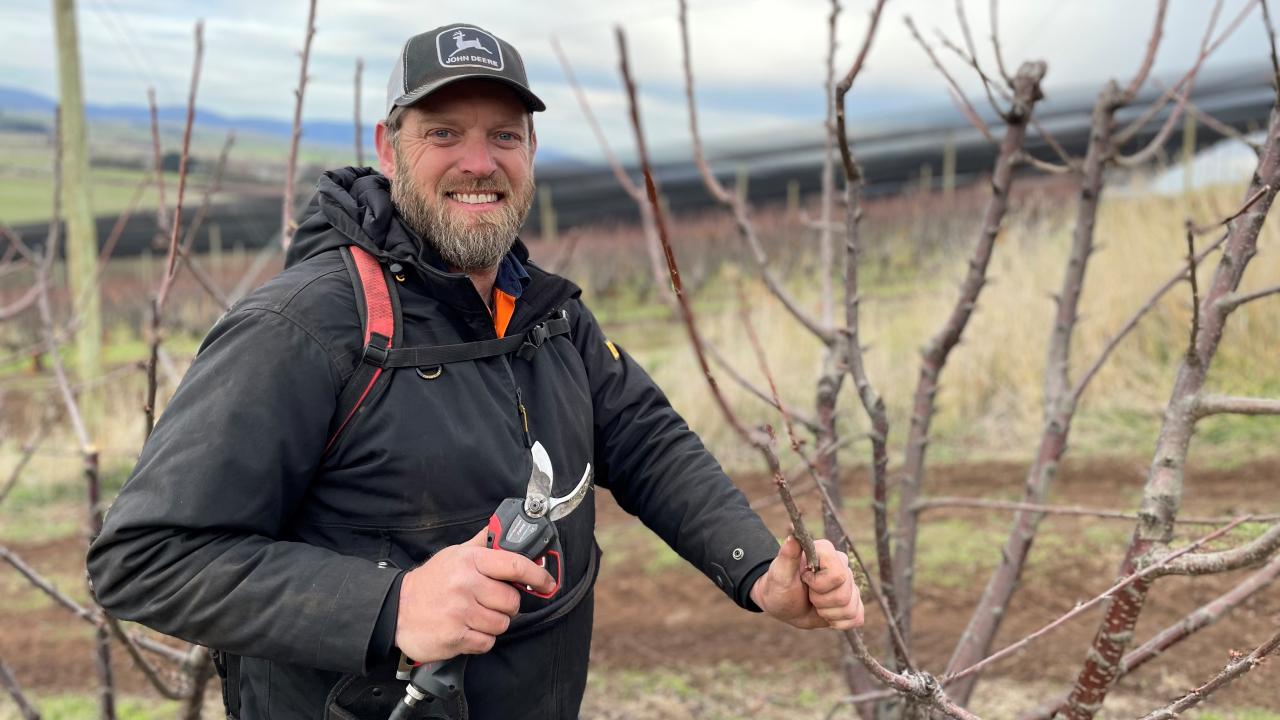$2.5m net gain as the birds get the bird

SOMERCOTES Cherries on the Midland Highway near Campbell Town has made a $2.5 million investment to protect their valuable crop from birds.
Most of the cherry crop has been covered in netting and the remainder is expected to be covered within the next 12 months.
Orchard manager David Allanson said that the farm would be able to increase its output during the cherry season, which typically runs from mid-December to late February.
“Two seasons ago, when Somercotes was smaller, we usually had a crew of about 15 pickers,” Mr Allanson said.
“At one stage this year we had 52 pickers, not including the array of support and packing staff.”
With an anticipated increase in volume once the netting was fully erected, Mr Allanson said he expected next season they would have even more pickers.
A core team of four takes care of the orchard year-round.
The Rigall family’s Somercotes has expanded from 12ha to 52ha since it began growing cherries in 1823.
“Originally, birds weren’t a big problem before expanding the orchard,” Mr Allanson said.
“But once the new trees began producing fruit, the birds soon found where to find cherries from Christmas onwards.
“Flocks of starlings can destroy ripe fruit extremely quickly.”
During previous growing seasons, before the netting was established, 15 per cent of Somercotes’ crop would be damaged.
Mr Allanson said protection against wind damage was another factor behind Somercotes installing netting.
“Bird damage and wind, which damages the cherries when they rub together, cause a lot of damage,” he said.
“It turns them into second-class and waste fruit.
“A lot of work has gone into the netting, getting high tensile cable structure up and treated timber poles.
“Hanging the nets isn’t the hardest bit, the netting structure, cabling and ground work is the most challenging aspect.” Mr Allanson said Somercotes had invested in fans that mix warm and cool air to protect cherries from frost.
“In late October, we had -3.5C after the trees had bloomed and it did some damage with the frost along the lowest parts of our orchards,” Mr Allanson said.
But that did not have a significant effect on the most recent cherry harvest.
“The farm had its highest yield this year due to the new orchard plantings, which are in their fifth year and are now producing commercial quantities,” he said.
“It normally takes a new tree five years to get to commercial production.” Mr Allanson said the Tasmanian cherry industry was close-knit.
“We all talk to each other regularly about different growing and pruning techniques as well as treatment products everyone is currently using, as the produce science and technology are always evolving.
“Everyone is very supportive of each other and always willing to lend a hand whenever possible.”




Add new comment